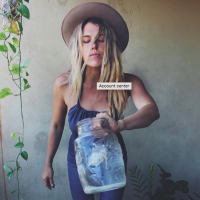View this post on Instagram
It is a rare privilege to be able to consider a zero-waste lifestyle.
If we assess the socioeconomic status of most humans in the United States, cutting back on plastics is not an option.
All products—food, drink, cleaning products, personal care products—come packaged in plastics. The most affordable, most accessible items are wrapped in plastic whether we like it or not. So, if someone only has one shop in their area full of plastic items, they have limited choices.
If someone is struggling to make ends meet, the cheapest items are what go in the cart—regardless of their packaging. Large families with many mouths to feed and bottoms to diaper have to make decisions less from an ethical or environmental perspective and more from a place of necessity—not because they aren’t aware of the impact of plastics on human health or the environment, but because it’s the only option.
Most people would choose an alternative if it were available.
If you have the resources or privilege to make a change, this is your chance to help influence a social movement.
By using fewer plastics, we can assert our demand for less plastic packaged alternatives, acceptance and allowance of reusables, refill systems, and repurposing items.
It is not just about quitting plastics; it is about withholding our money and exerting our social capital against this material that is the aftermath of our extreme over-consumption.
Quitting plastics is a relatively easy switch for the privileged, the folks who have likely been consuming at unsustainable rates. It seems like a fair move. I realise that quitting plastics is not going to stabilise the mass consumption of the global north. But by Zeus, it’s a gosh darn start!
It is a relatively simple change to make, but certainly not the only changes we can make to meaningfully reduce our impact on our precious planet.
Don’t just mindlessly buy all the things on the shelves that we’ve always bought, or the brands we trust based on their recognisable names or persuasive marketing.
Let’s become more mindful when we shop, buy things, and consume. It will not only help us buy fewer plastics but also help us to regain some sovereignty.
We are not shopping sheep herded in and out of shopping centres by the ads and coupons and marketing messages we are barraged by on an hourly basis.
We are humans, we are mindful, and we have the ability to put the dear earth back on track.






Read 3 comments and reply